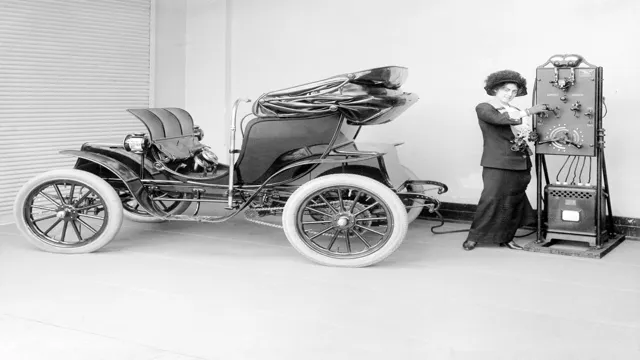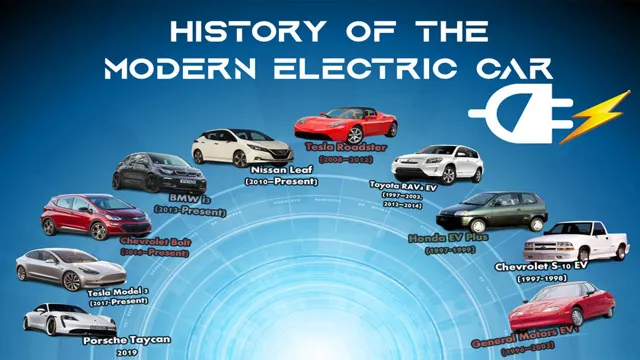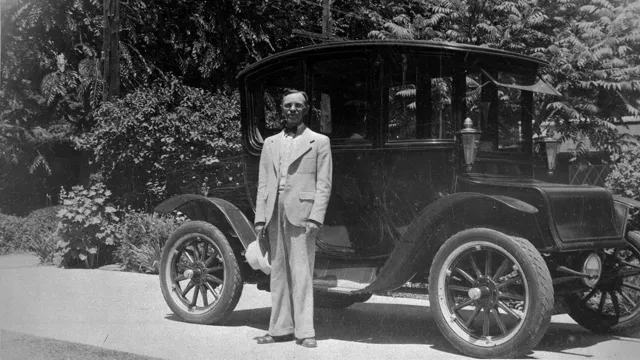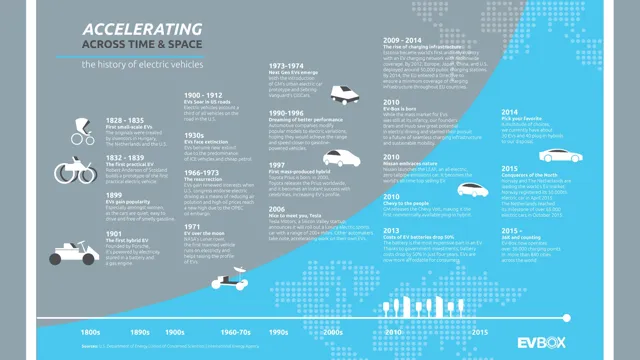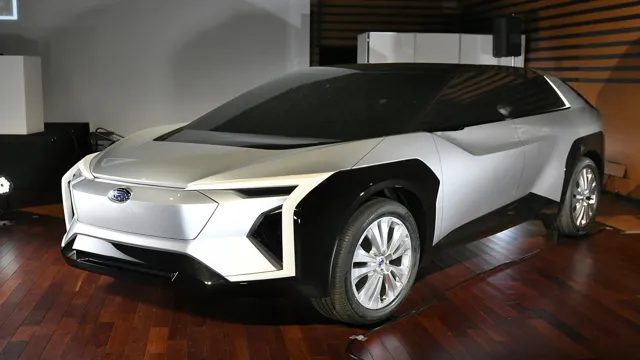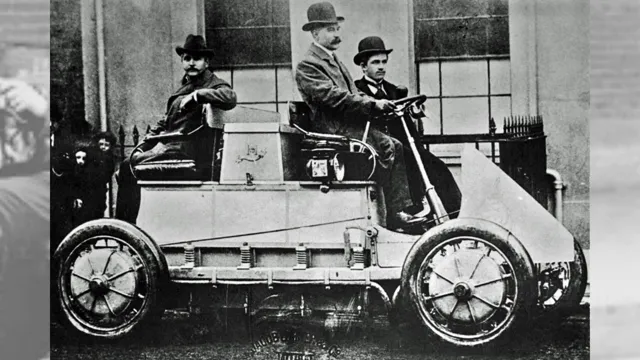Electrifying Through Time: A Journey into the History of Electric Cars
Electric cars are becoming increasingly popular in today’s world, offering a more sustainable and environmentally-friendly alternative to fossil fuel powered vehicles. However, have you ever wondered about the history of electric cars? The concept of electric cars date back to the early 1830s, with various inventors trying their hand at creating an electric vehicle. It wasn’t until the late 1800s when the first practical electric car was created, quickly becoming a popular mode of transportation in cities like New York and London.
Despite their popularity, the widespread adoption of electric cars was hindered by limitations in battery technology and the rise of gasoline-powered cars. But with recent advancements in battery tech and growing concerns over climate change, electric cars are once again on the rise. Let’s take a closer look at the history of electric cars and how they’ve evolved over time.
Early Electric Cars
Electric cars have been around for much longer than most people realize. In fact, the first electric vehicle was invented in the 1830s by a Scottish inventor named Robert Anderson. However, it wasn’t until the late 1800s that electric cars began to gain traction as a viable mode of transportation.
At that time, electric vehicles were actually quite popular, especially among women. They were seen as cleaner and easier to operate than gas-powered cars. However, the invention of the gasoline engine changed everything, and electric cars slowly fell out of favor.
It wasn’t until recently that there has been a renewed interest in electric cars as a more sustainable and environmentally friendly alternative to gas-powered vehicles. Today, we have a range of electric cars on the market, from small city cars to luxury SUVs. And with advancements in battery technology, electric cars are becoming more efficient and practical than ever before.
Late 1800s and Early 1900s Innovations
The late 1800s and early 1900s saw a great deal of innovation in the automotive industry, with the emergence of early electric cars being a noteworthy advancement. These cars were powered by rechargeable batteries and represented a promising new alternative to the standard gasoline-powered vehicles. However, early electric cars were limited in their range and speed, as well as the availability of charging stations, which often made them impractical for long-distance travel.
Despite these limitations, they were still widely popular in urban areas and were utilized for a range of purposes such as commuting and delivery. Today, electric cars have made a significant comeback, with modern technology allowing for faster charging times and longer ranges. With a growing focus on sustainability, electric cars are poised to become an increasingly popular option for those in search of an environmentally-friendly mode of transportation.
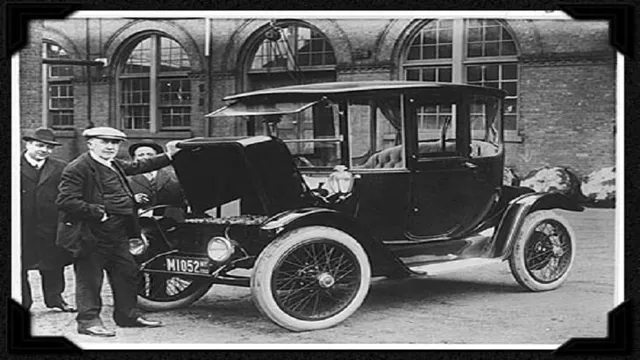
Fall of Electric Cars
What history do we have of electric cars? The origin of electric cars can be traced back to the early 1800s when the first electric carriage was invented. Electric cars gradually became popular in the late 19th and early 20th century, with their peak sales in the early 1910s. However, with the invention of the gasoline engine, electric cars started to decline.
This decline was further accelerated by the discovery of oil reserves in the Middle East, making gasoline cheaper and more accessible. Despite several attempts to revive the concept of electric cars in the 1960s and 1970s, it only gained mainstream attention again in the 1990s when major car manufacturers started investing in electric vehicles. However, the cost and limited range of early electric cars made them impractical for most people.
It was not until the introduction of the Tesla Roadster in 2008 that electric cars became a serious alternative to gasoline-powered vehicles. Today, with the advancement of battery technology and the development of charging infrastructure, electric cars are becoming more popular than ever before.
Introduction of Gasoline Cars
Gasoline cars were introduced in the late 19th century, and soon after, the popularity of electric cars started to decline. Despite being cleaner and more efficient, electric cars couldn’t compete with gasoline-powered cars in terms of speed and range, which made them less practical for long-distance travel. As gasoline cars became more affordable and widely available, they quickly became the preferred choice among consumers, leading to a sharp decline in the production and use of electric cars.
This trend continued throughout the 20th century, as gasoline cars dominated the automotive industry and shaped society’s dependence on fossil fuels. However, with the growing concern about climate change and the need for sustainable transportation, the electric car industry is experiencing a resurgence. Companies like Tesla and Nissan are leading the way in developing electric cars with longer range, faster charging times, and more advanced technology than ever before.
As the world shifts towards cleaner, more renewable energy sources, the future of the automotive industry is looking to be electric.
Lack of Infrastructure and Range Anxiety
The fall of electric cars can be attributed to a combination of factors, including the lack of infrastructure and range anxiety. While many people are interested in the idea of an eco-friendly vehicle, they are hesitant to invest in an electric car due to concerns about not being able to find charging stations or the battery running out while on the road. This lack of infrastructure and range anxiety creates a sense of uncertainty that can discourage potential buyers.
In addition, the cost of installation for charging stations can be prohibitive for some home and business owners, further limiting the number of available options for charging electric cars. As a result, electric cars have yet to become a mainstream option for many consumers. Until infrastructure improves and range anxiety is alleviated, it is likely that electric cars will continue to struggle in the market.
Revival of Electric Cars
The history of electric cars dates back to the early 1800s when inventors like Thomas Davenport and Robert Anderson built the first electric vehicles. However, it wasn’t until the late 1800s that electric cars gained popularity due to their quiet motor and lack of pollution. In fact, the first electric taxi service was launched in New York City in 189
But by the early 1900s, the invention of the gasoline-powered car and the rise of cheap oil caused a decline in the demand for electric cars. It wasn’t until the 1990s that electric cars made a comeback with the introduction of modern lithium-ion batteries. Nowadays, electric cars have evolved with new technologies like regenerative braking and electric motors becoming more efficient.
With their decreased dependence on fossil fuels and improved performance, it’s no wonder that electric cars are experiencing a major revival in the 21st century.
Environmental Concerns and Government Incentives
The revival of electric cars has been a key topic in the midst of increasing environmental concerns and a push for more sustainable forms of transportation. Governments around the world are incentivizing the adoption of electric cars through various policies and programs, including tax incentives, rebates, and even the installation of charging stations in public places. These incentives aim to make electric cars more accessible and affordable for consumers and promote a shift away from fossil fuel-powered vehicles.
As a result, more and more people are making the switch to electric cars, which not only benefit the environment but also offer long-term savings on fuel and maintenance costs. The future of transportation may be electric, and with the help of government incentives, it’s becoming more of a reality for many individuals and families.
Technological Advancements and Market Demand
Thanks to technological advancements and the growing demand for environmentally friendly transportation, electric cars are on the rise. With concerns over climate change and air pollution, electric cars have become a popular choice for the environmentally conscious consumer. The automotive industry has recognized this trend and has responded by investing in electric car technology.
There has been a significant revival in the electric car market, with many leading car manufacturers producing electric models. Tesla, in particular, has been at the forefront, producing high-performance electric cars with impressive driving range. However, other manufacturers are also following suit, offering more affordable electric options with impressive features.
As consumers become more interested in the environmental and economic benefits of electric cars, it is likely that the demand for electric vehicles will continue to grow. With further advancements in battery technology and charging infrastructure, electric cars are set to become the norm in the foreseeable future.
Current State of Electric Cars
What history do we have of electric cars? Although it may seem like electric cars are a relatively new concept, they actually have a long and fascinating history. Electric cars were first invented in the 1830s, long before gasoline-powered cars became the norm. In the early 20th century, electric cars were even more popular than gasoline-powered cars, particularly among women due to their ease of use.
However, advancements in gasoline-powered car technology and the discovery of vast oil deposits eventually led to the decline of electric cars. In recent years, however, there has been a renewed interest in electric cars due to concerns about the environment and climate change. Today, electric cars are becoming more widely available and affordable.
While there are still some challenges, such as range anxiety and the need for more widespread charging infrastructure, electric cars are poised to become an increasingly important part of the automotive industry.
Growing Popularity and Increased Production
Electric cars have been gaining immense popularity in recent years, with a significant increase in production and sales worldwide. As people become more environmentally conscious, the demand for fuel-efficient and sustainable transportation options increases, and electric cars fit this bill perfectly. In fact, electric car production has seen a tremendous growth rate, with industry experts predicting that the global electric vehicle market would rise to around 27 million units by the end of 2030.
Governments are also incentivizing the production and adoption of electric cars by offering tax credits and exemptions, fuel vouchers, and other benefits, resulting in a burst of innovation and investment in the industry. As electric cars become more affordable and practical, the future looks bright for sustainable transport.
Challenges and Opportunities for the Future
The current state of electric cars is promising, with sales and adoption growing year by year. However, there are still some challenges and opportunities for the future of this new technology. One of the biggest challenges is the issue of range anxiety – the fear of running out of battery power in the middle of a trip.
This is largely due to the limited range of electric cars compared to traditional gasoline vehicles. Additionally, there is still limited charging infrastructure in many areas, making it difficult for drivers to find a place to charge their cars while on the road. However, there are also many opportunities for the future of electric cars.
As technology improves, the range of electric vehicles is increasing, and more charging stations are being installed across the country. There is also the potential for electric cars to be much more affordable in the long run, as they have lower fuel costs and require less maintenance than traditional cars. This could make electric cars more accessible to a wider range of consumers and accelerate the shift away from gasoline-powered cars.
Overall, while there are still some challenges to overcome, the future looks bright for electric cars. With technological advancements and a growing market demand, electric cars have the potential to revolutionize the way we drive and significantly reduce our reliance on fossil fuels.
Conclusion
In the history of electric cars, we have seen sparks of brilliance, shocking developments and electrifying advancements. From the early days of experimentation to the current trend towards sustainable transportation, it’s clear that electricity is here to stay in the automotive industry. So plug in, buckle up, and get ready for a ride into the future of electric cars!”
FAQs
When were electric cars first invented?
Electric cars were first invented in the 1830s.
Who developed the world’s first practical electric car?
Thomas Davenport is credited with developing the world’s first practical electric car in 1835.
What was the popularity of electric cars in the early 20th century?
Electric cars were quite popular in the early 20th century, with about one-third of all cars on American roads being electric in 1900.
What led to the decline of electric cars in the mid-20th century?
The decline of electric cars in the mid-20th century was due to the advent of gas-powered cars, which were cheaper and easier to mass-produce.
